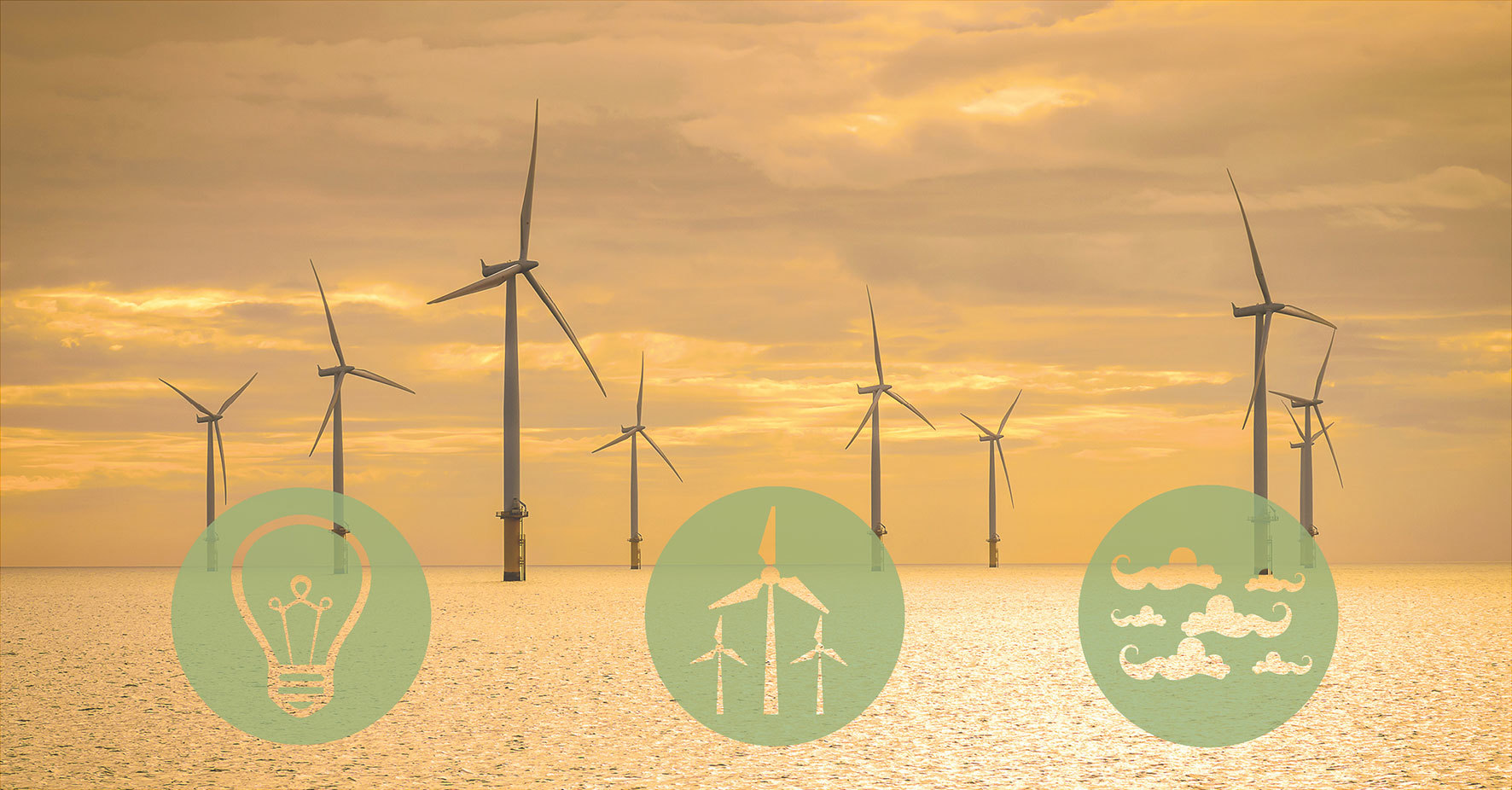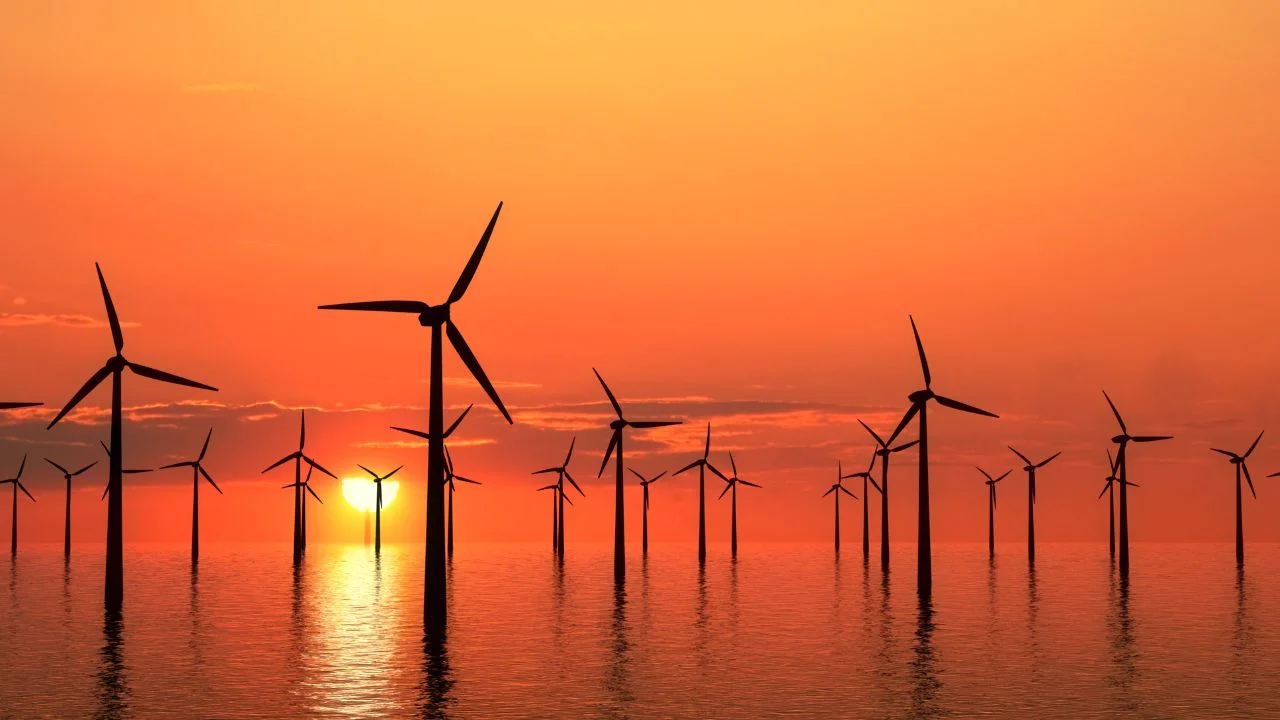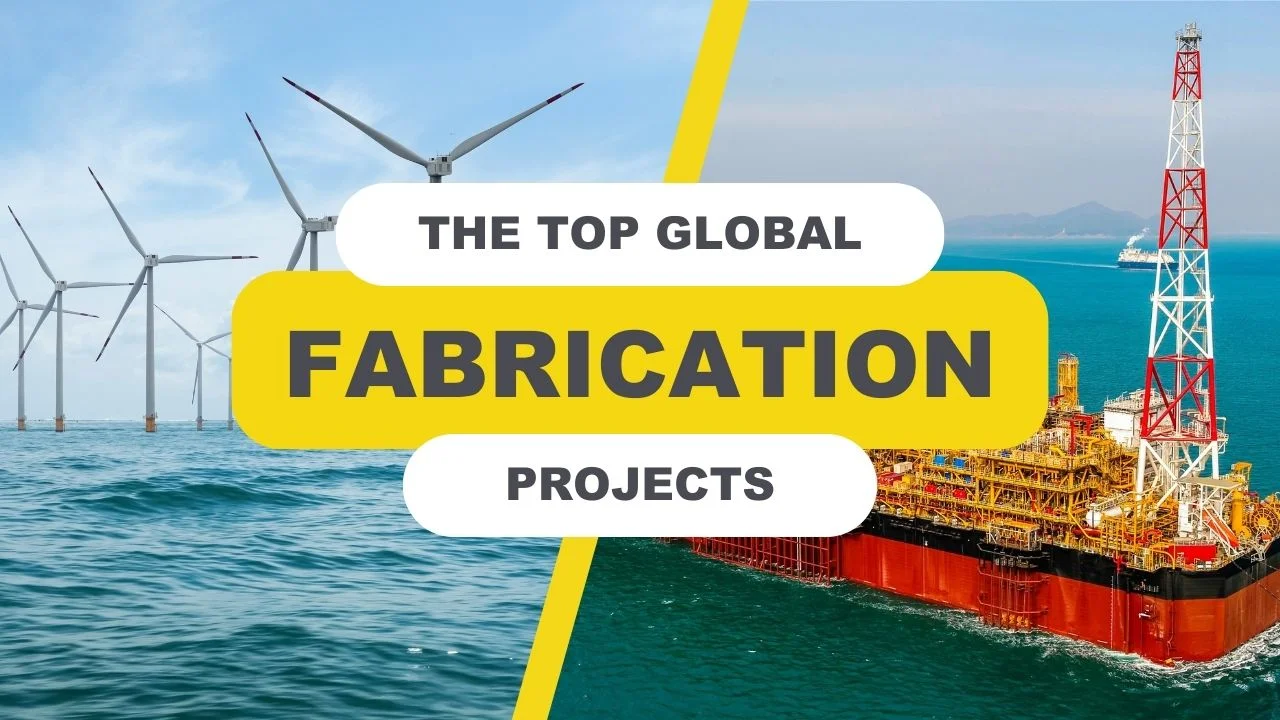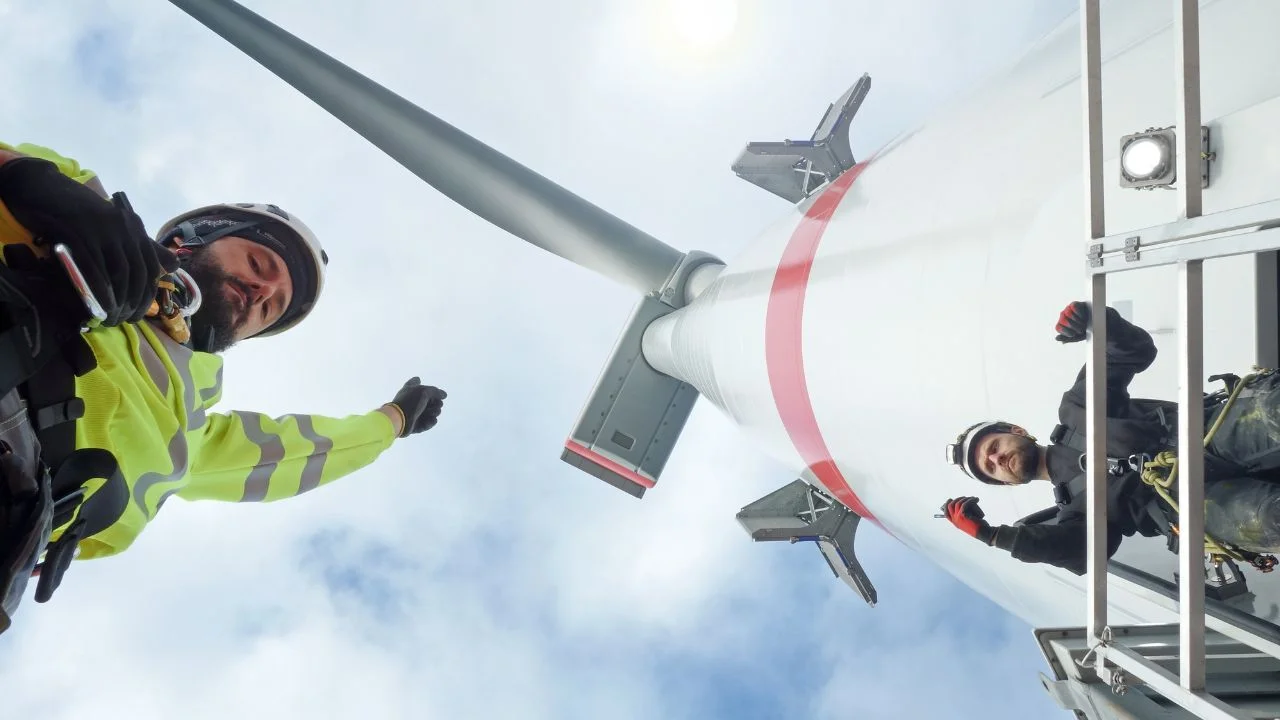Challenges Clients May Face When Staffing An Offshore Wind Farm
18 Sept, 20196:26It is predicted that the offshore wind energy market will exceed $60 billion by 2024, accord...

It is predicted that the offshore wind energy market will exceed $60 billion by 2024, according to market research conducted by Global Market Insights Inc. Offshore Wind is growing substantially in popularity providing technicians with significant job opportunities. But, Offshore Wind workers possess scarce skills, making it difficult for clients to source talent; and leading to huge mobility and logistical challenges.
Unpredictable weather
One of the main challenges when it comes to preparing a workforce for offshore wind projects is the unpredictability of external factors such as weather. Although modern turbines are built to withstand hurricanes and harsh wind speeds, humans are not. Weather conditions play an important role in deciding when and if operations or maintenance can take place and if a technician is even able to gain access to the site. So much depends on the specific conditions of each location and no two are the same. Clients planning to mobilise offshore engineers need accurate and continuous weather information to ensure the safety of everyone involved which is not always possible to obtain.
Weather can also drive complex legal issues. For example, if an engineer is due to return from a project but experiences harsh weather conditions, they may be forced to retreat to the nearest country to ensure safety, meaning their liabilities can suddenly change from one country to another.
Clients must also prepare for unexpected costs. Projects can be in the pipeline for years, leaving plenty of time to plan out workforce needs initially, but when the work begins demand can soon change. A team of 24, for example, may be budgeted for but adverse weather conditions could mean they need extra support. It’s not just the extra staff clients need to then budget for– more people means larger transport and hotel costs and potentially extra training costs. It’s also important to budget for the eventuality that your workers may not be able to access the site; they will still require payment even if they can’t do the work.

SOLUTION
Although there are many algorithms available to predict external factors such as wave height or wind speed, they are not always correct and weather can change without warning.
In times like this when you need extra support, bear in mind it can take 6 months to train someone to maintain a wind turbine from unskilled, so it is vitally important to plan ahead and begin the hiring process at least 6 months before the project start date. It is also worth considering hiring a surplus of technicians in case of emergencies.
At NES, we develop a close partnership with our clients, to ensure both parties can be flexible when unexpected needs arise. If we are updated regularly on the process, we can efficiently source the right technicians for the project, and share the risk with you. Our vast global resources of over 950 staff members enable us to make changes to plans quickly and make adjustments to contracts when needed.
We also have an award winning compliance operation that can assist you in navigating the complex legal landscapes of Global Mobility.
Hazardous locations
As the planet becomes more dependent on forms of clean energy such as offshore wind, the risks of developing these projects grow as boundaries are pushed in order to increase the available capacity.
Having already made the leap from onshore to offshore, the industry has recently ventured into deeper waters, which in itself is a tough challenge and presents enormous risks but also great rewards. In these remote locations, more powerful and reliable wind is available meaning larger capacity for power generation but when going offshore, turbines become much less accessible for workers and they require service vessels such as helicopters for routine access. Large waves also present safety challenges, as to compensate for the deeper waters, turbines are built taller and this could cause severe injuries or in some cases fatality if someone was to fall.
Having to work in Hazardous locations can cause insurance costs to rise. Clients looking to mobilise workers need to be aware of these high insurance costs. Things to consider include:
- Worker’s compensation claims – are your staff adequately insured if they suffer injury, illness or accidental death?
- Medical insurance – do you have adequate medical insurance that includes international evacuation or repatriation in cases of emergencies?
- General Liability – are you prepared if one of your workers cause injury or property damage to third parties?
SOLUTION
It’s vitally important to provide your workers with the right cover. Here at NES, we can provide clients with outstanding safety and support – 24 hours, 365 days a year. We have partnerships with a leading independent global risk consultancy, who have a network of government, police, NGO, banking, media and law specialists across all continents. Through this partnership, we are able to provide the most current safety advice to clients and with more than 60 offices in 31 countries NES are never far from the workers that we represent. Our medical insurance can also provide evacuation cover to the nearest centre of excellence or repatriation cover to ensure you workers get home safe.
Our award winning compliance operation can support you in providing the right insurances when it comes to mobilising workers in difficult locations, from emergency medical treatment and evacuation, to injury and damage to third party property.
Complex legal landscapes
Compliance on offshore wind farms is a huge obstacle for clients. Engineers perform hands-on work in many countries over short spaces of time, which in some cases makes them liable for tax and social security in different places. In order to be compliant, clients’ need to be aware of the risks, plan their compliance well in advance and engage specialist tax experts, in order to avoid being tripped up by ‘stealth’ liabilities and missed filing requirements. Navigating the rules and regulations for different countries can be tricky and if not done correctly can have disastrous consequences.
With offshore wind technicians possessing such niche and unique skills, clients often have to transfer them to different sites in situations where there is no local worker with the skillset required. In the EU, with free movement, mobilising candidates out of their native country can be less challenging. But in countries such as the USA or Australia, clients will need to provide workers with work permits before they can access the site and each case needs to be tackled individually.
In some cases, countries have regulations that make it difficult for non-nationals to work there. They put a preference on hiring their nationals first, especially if an offshore wind farm is well established in the area and already has native workers servicing it – it can be difficult to gain visas and this can cause delays in maintenance, meaning turbines can be out of action for longer than necessary.
As Brexit nears, clients in the UK need to prepare for a no-deal scenario which may make mobilising candidates around the world more difficult until the situation is resolved.

SOLUTION
To ensure your compliance, you will need a sizable team of resources capable of processing large amounts of paperwork. But, in the instances where resources can’t be dedicated in this way, NES can help alleviate the burden. We can:
- Support you to enforce policies, ensuring consistency, fairness and controlling cost
- Manage your administration and compliance related to an assignment before, during and after a project.
- Handle your employer liabilities and reporting burdens abroad (payroll, contracts, insurance).
- Give consultancy and advice on the best set-up from a 360 perspective.
- Screen and vet all candidates to ensure they have valid certificates.
- Provide consultancy on mobilizing in every country we work with. This information comes from our expert lawyers who have access to all the answers!
- Provide visa support, ensuring the process of obtaining a work permit is as smooth as possible.
Find out more about our assignment support services.
Skill shortages
The entire renewable energy sector is fast-growing. This innovative and exciting sector is providing a breadth of job opportunities and a range of career paths for skilled engineers. In offshore wind alone, Renewable UK is looking to support 27,000 roles before 2030. It’s no secret that these skills are in demand and because of this; clients need to develop a resource plan which could include up-skilling candidates or relocating specialised technicians around the world.
Working on an offshore turbine is likened to a Formula 1 pit crew; each member of the team has a specific role to ensure the task can be completed in an efficient and swift manner. Each technician is trained for that particular role and the skills are not always transferable because they are so specialised. Someone who is trained to maintain a 2 megawatt turbine will be unable to then work on a recently engineered 10 megawatt turbine because they operate differently. Clients must be prepared to dedicate resources to training and up-skilling their candidates and plan for this in advance.
This skill shortage is partially driven by the remote nature of offshore work. Like oil rigs, engineers who train to work on offshore wind farms need to be willing to relocate. This can be especially challenging to families who have children and spouses to consider when taking job opportunities.

SOLUTION
When competition for candidates is fierce, and technicians are not easily sourced, it can cause delays to projects and become a cost issue.
At NES, we are committed to:
- Saving you time and money – by allowing us to take the recruitment burden, you don’t need to worry about conducting research, interviews or background checks, meaning you have more time to focus on your project.
- Reducing your time to hire – because we have a global network of connections, we are able to meet challenging deadlines to ensure you have the workforce you need on time and within budget.
- Supporting mobilization - once we have found the ideal people for your project, we can take care of every detail including arranging visas and work permits, mobilising the candidates, arranging accommodation and operating a fully compliant local payroll with payments in the local currency
- Tailoring the solution to your needs - We work with you throughout the project to fully understand your challenge and offer the optimum solution. This can include working from your offices, managing the recruitment process, offering consultancy and producing strategic hiring plans and progress reports.
Navigating the world of Global Mobility can be daunting, especially in cutting edge industries such as Offshore Wind. If you are looking for advice on mobilising your workforce, our dedicated Global Mobility experts can support you when it comes to navigating complex legal landscapes.









